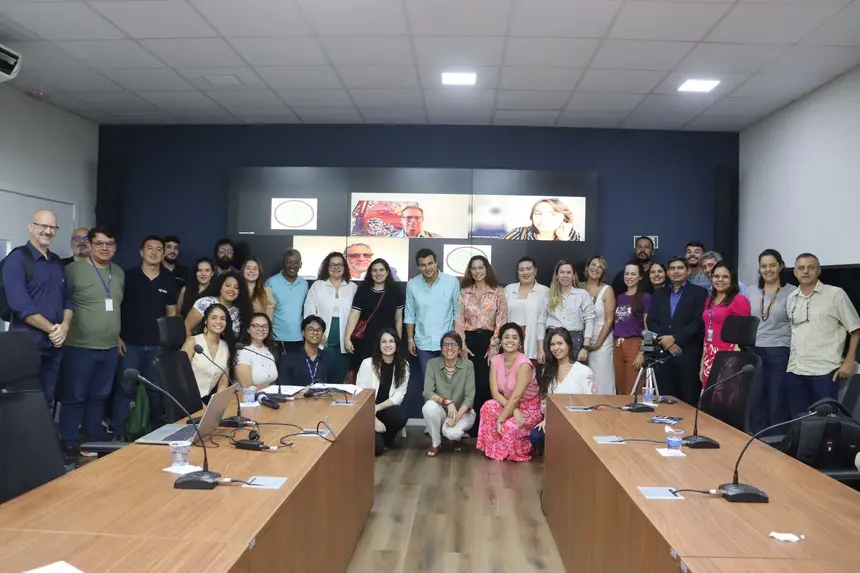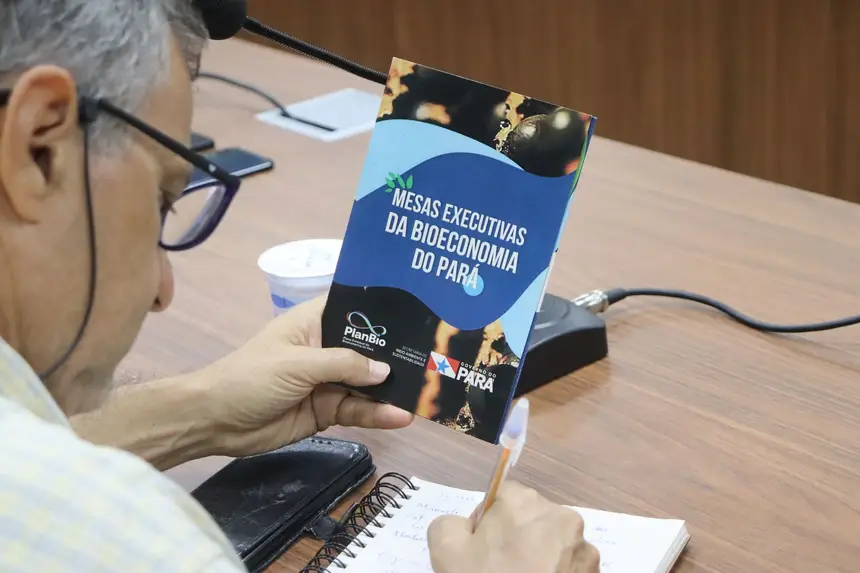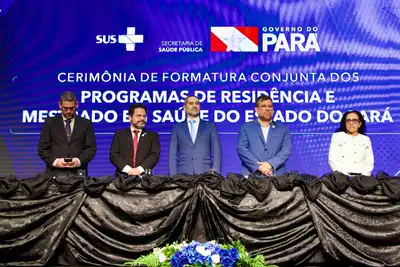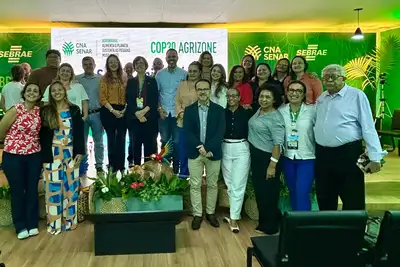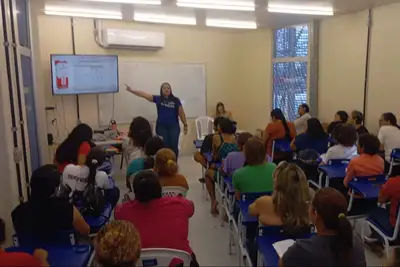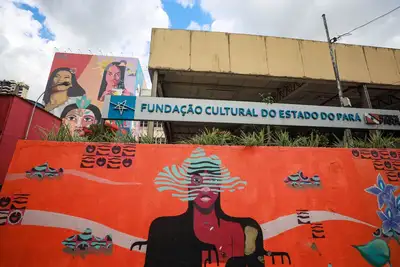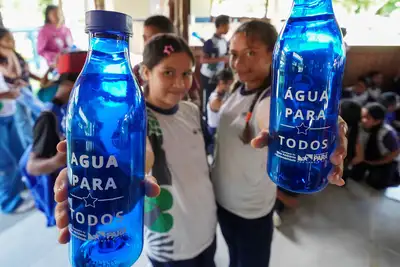Semas promotes first Executive Table of Açaí in Brazil
The initiative promotes listening to the productive sector to find solutions that can contribute to the state production chain
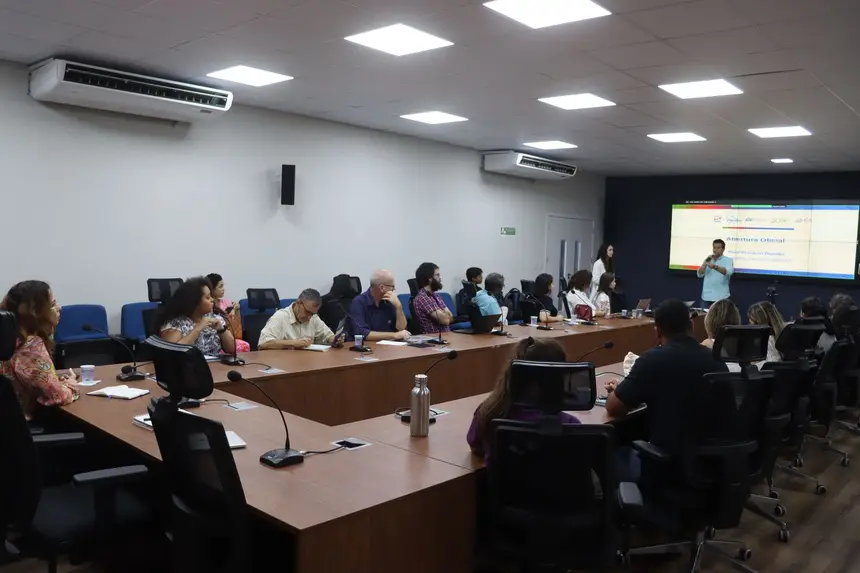
On this Monday (20), the State Secretariat for the Environment and Sustainability (Semas) promoted the first Executive Table of Açaí in Brazil. The event, which had the presence of more than 40 participants from the private and academic sectors, as well as organizations, is an unprecedented initiative to transform and elevate the açaí sector, one of the main state production chains, through listening to the productive sector. The intention is to understand the bottlenecks and obstacles of the chain using a methodology developed in Peru - called Executive Tables.
During the engagement meeting and project presentation, benefits such as increased productivity, improved product quality, expanded export volume, and promotion of sustainable development were discussed. The goal is not only to consolidate and expand Pará's presence in the global market but also to transform açaí into an economic development engine for the region.
"The open territorial learning methodology we adopted in the Regulariza Pará Program respects the autonomy and social organization forms of the communities. It respects the free, prior, and informed decision-making process led by the traditional community, including the definition of the nominal list of community members that will compose the CAR/PCT of the territory. The entire construction and discussion process is fundamental, as it reinforces historical processes of struggle for collective territorial rights and values the natural and cultural resources of the communities. We are very happy to support the quilombola territory of Siricari,” says Rodolpho Zahluth Bastos, deputy secretary of Environmental Management and Regularity at Semas.
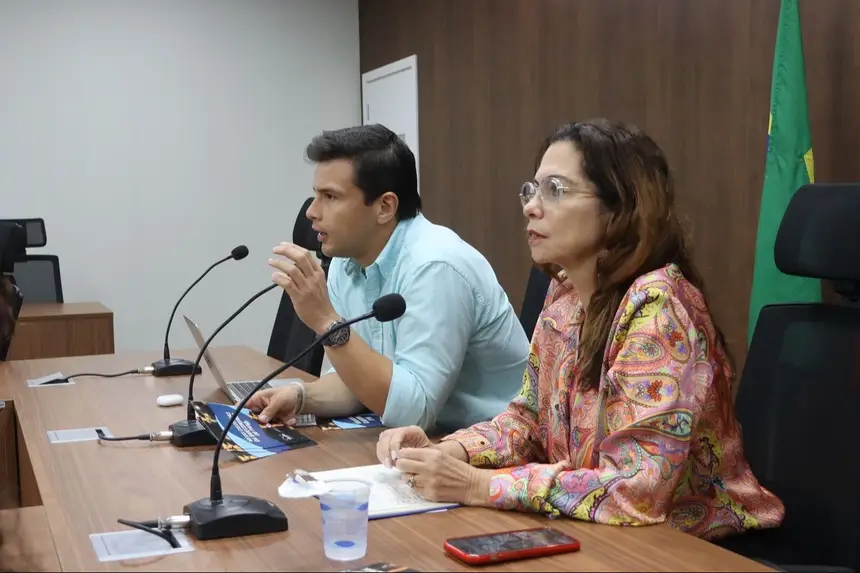
The constructed space aims to deliberate with monthly meetings that seek to diagnose bottlenecks, stimulate innovation, and access new markets. Inspired by international practices, the Executive Tables seek to strengthen Brazilian companies in the global scenario through articulations that favor the competitiveness and sustainability of local production chains.
The concept of Executive Tables is formed by three main components: the productive vanguard, composed of business leaders with extensive experience in the sector; the management team, responsible for coordinating the work; and the support team, composed of technicians who assist in designing implementation strategies.
The Executive Tables model has already shown its effectiveness in 2024, with the implementation of the Executive Table for Pará Nut Export. The program generated an increase of over 424% in nut exports and doubled the participation of companies in international events, consolidating the experience as a success to be replicated in the açaí sector.
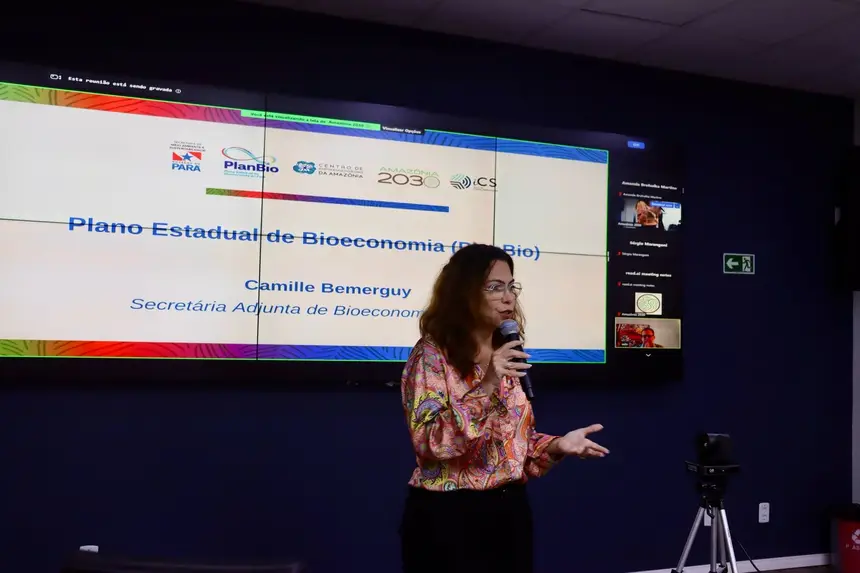
The deputy secretary of Bioeconomy at Semas, Camille Bermeguy, highlighted the importance of the tables as a point of convergence. "Our role, as a State, is to catalyze this process and ensure that it generates real impacts, including guiding public policies. But this only happens if there is active participation from the private sector, with representatives who know the daily challenges, so that we can seek joint solutions in the Tables that strengthen the entire production chain."
The project aims to enhance the açaí production chain and also highlight the product's potential in transforming biodiversity into an economic opportunity. "The executive tables help to turn the key: they show that forest products are not only important for communities or the environment — they are also a real economic opportunity," commented Salo Coslovsky, a professor at New York University, who led part of the presentation.
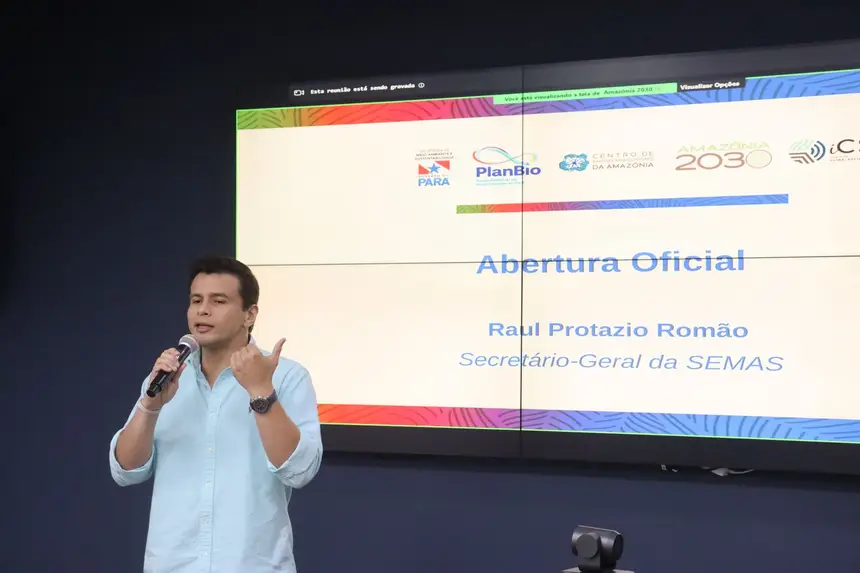 Raul Protázio, Secretary of the Environment and Sustainability of Pará, emphasized the relevance of the Executive Table of Açaí as a milestone in the search for sustainable development in the region. "With the creation of the Table, we are reinforcing the State's commitment to bioeconomy. This innovative governance model, in partnership with the private sector, will be fundamental for us to elevate Pará as an example in the global açaí market while promoting sustainable practices and local development," he stated.
Raul Protázio, Secretary of the Environment and Sustainability of Pará, emphasized the relevance of the Executive Table of Açaí as a milestone in the search for sustainable development in the region. "With the creation of the Table, we are reinforcing the State's commitment to bioeconomy. This innovative governance model, in partnership with the private sector, will be fundamental for us to elevate Pará as an example in the global açaí market while promoting sustainable practices and local development," he stated.
The Executive Table of Açaí continues with the opening of registrations for companies to participate in the initiative, which will provide monthly meetings.
With the support of the Amazon Entrepreneurship Center (CEA) and the Amazon 2030 Project, the action is aligned with the State Bioeconomy Plan (PlanBio).


